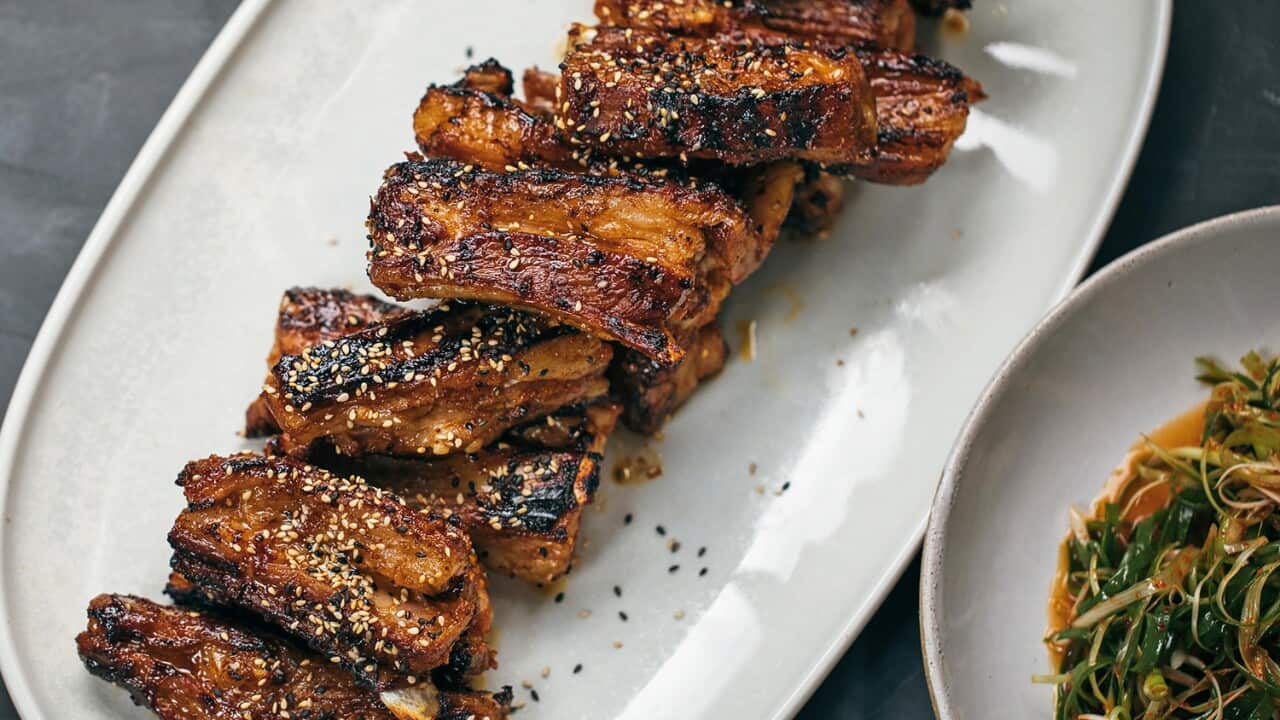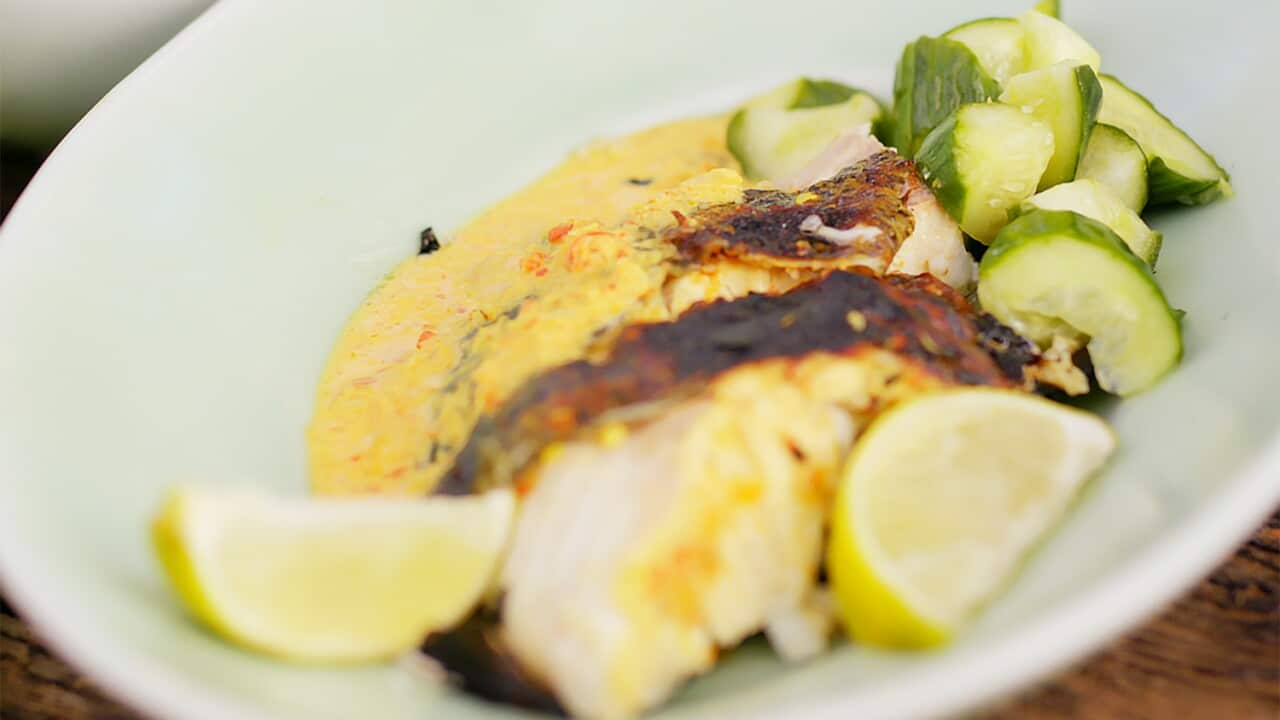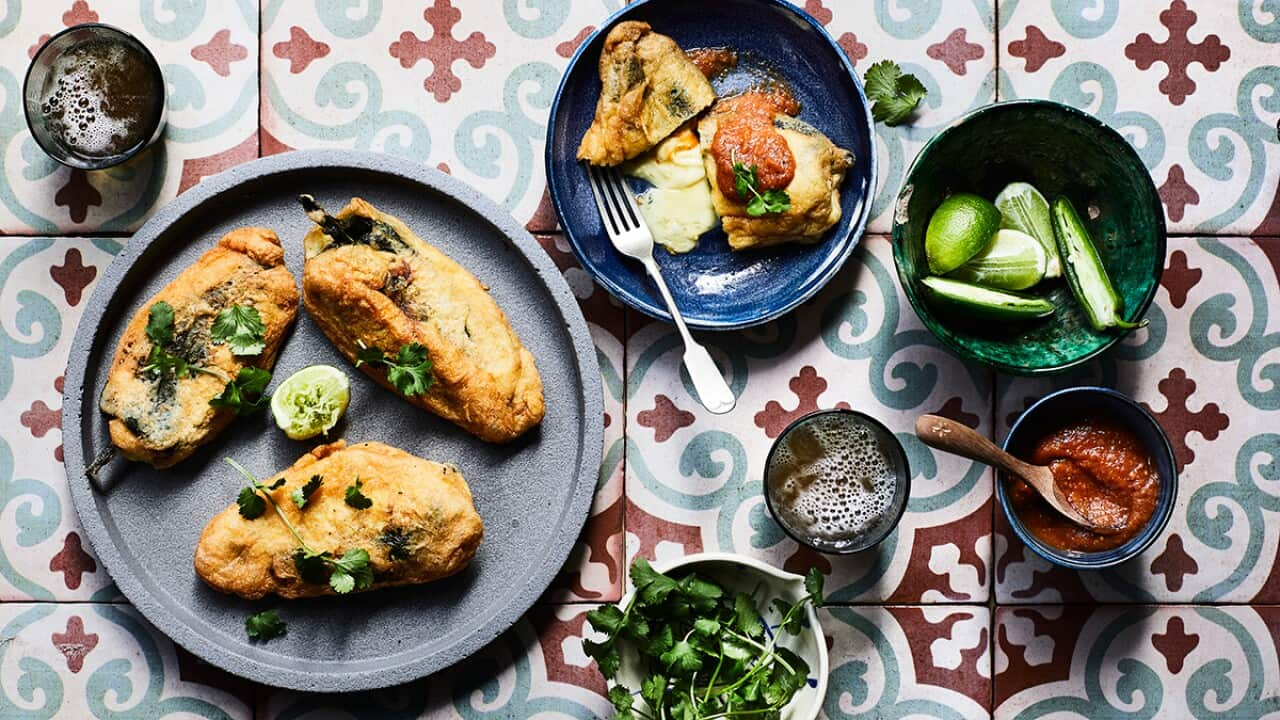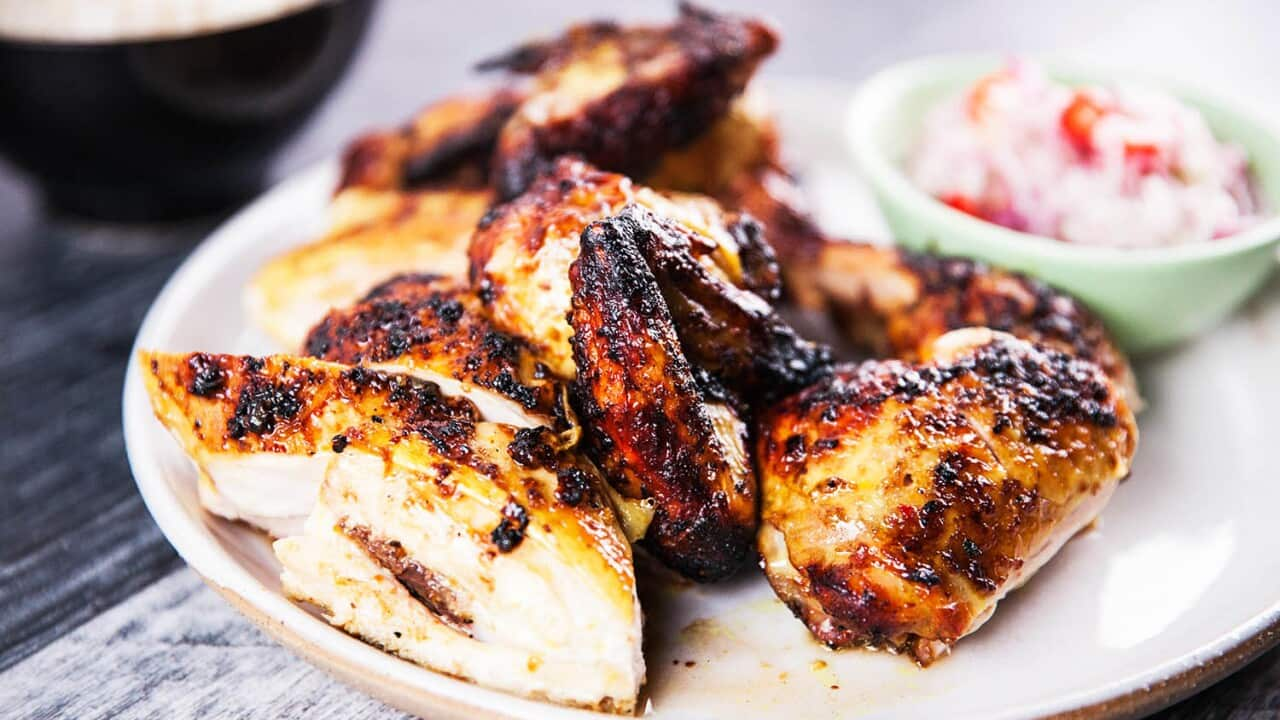Those outside Sydney often associate the dining scene with a certain breezy glamour – a long lunch in a French bistro, say, or seafood by the Harbour. But it’s hard to think of a ritual that exposes the gap between the city’s whitewashed image and all the complexity of its cultural reality like devouring Lebanese-Australian chicken. Preferably, cooked over hot charcoals, crowned with cloud-light toum (garlic sauce) and served with a tower of fresh pita, a trifecta made famous by .
The much-loved eatery was founded in 1998 by Lebanese immigrants Andre and Carole Estephan in the Western Sydney suburb of Granville. It now has multiple locations and has become one of the city’s great social levellers in the process.
To visit a branch of El Jannah is to experience a microcosm of the city. Families argue over bronzed breasts and wings, skin glistening with marinade and crisped to perfection. Businessmen linger over hot-pink pickles. Tradies wait in queue for hot chips and a shawarma roll, fresh Lebanese bread stuffed with fall-apart beef, parsley, green pickles and tahini sauce. El Jannah’s following, says the brand’s CEO Brett Houldin, can be traced back to its first store.
El Jannah’s following, says the brand’s CEO Brett Houldin, can be traced back to its first store.

The bright, tart pickles and the signature El Jannah charcoal chicken. Source: El Jannah
“Australia’s palette has evolved a lot over the last 20 years,” Houldin tells SBS. “El Jannah grew out of Granville, the epicentre of many cultures. People from a Middle Eastern background really converged around that Granville store. Its popularity become cult-like for those who were familiar with the cuisine.”
The story of Lebanese cuisine in Sydney, of course, has had different incarnations. The Lebanese immigrants that arrived in the from the Ottoman district in Mount Lebanon, according to a May 2019 report in , had to conceal their spices to be invisible to the cultural majority. But the communities that fled the (1975-90) arrived at a moment in which Australia was slowly grappling with its multicultural history. Houldin says that the brand, which opened a Newtown outpost in 2019, is expanding around the country.
“This is the start of a real transformation for us because demand has seen us move out of areas beyond the customer base,” says Houldin, adding that stores in Canberra and the south coast of New South Wales are next. “We are in Kogarah, Burwood, Earlwood. Places like Newtown which is city fringe has been extremely successful. We opened in Preston, Melbourne eight weeks ago and it has been very well received.” When we picture local institutions, we imagine a favourite neighbourhood cafe, the Italian trattoria that doesn’t change even as the world does. How do you serve a community while expanding beyond your origins? For Houldin, this is about embracing consistency.
When we picture local institutions, we imagine a favourite neighbourhood cafe, the Italian trattoria that doesn’t change even as the world does. How do you serve a community while expanding beyond your origins? For Houldin, this is about embracing consistency.

More than two decades on, El Jannah has expanded far beyond its original Granville store. Source: El Jannah
“We focus on the chicken from a very early point in the supply chain process,” he says. “We have a central kitchen where we do all the marinating and then it goes to the store for cooking and preparation.”
El Jannah grew out of Granville, the epicentre of many cultures. People from a Middle Eastern background really converged around that Granville store.
At El Jannah, the unmistakable charcoal flavour is carefully calibrated.
“We are very specific about how long our chicken cooks over an open flame, how hot it needs to be, how long it is held for in terms for when it is cooked and when it is consumed,” he says. “Getting all that right is an art form. That is the number one priority. That is what we are known for. That’s what we can do when others cannot.”
Houldin says that despite its meteoric growth, El Jannah’s roots will always be firmly planted in Western Sydney and the connection with the Estephans continues.
"El Jannah has been a family-owned business for the 24 years it has run. Carole was originally the chef, Andre had the entrepreneurial mindset and together, they felt passionate about bringing their food to life. Today, they both continue to have an active role in El Jannah."
Raising the char

Korean sticky lamb ribs with pa muchim








